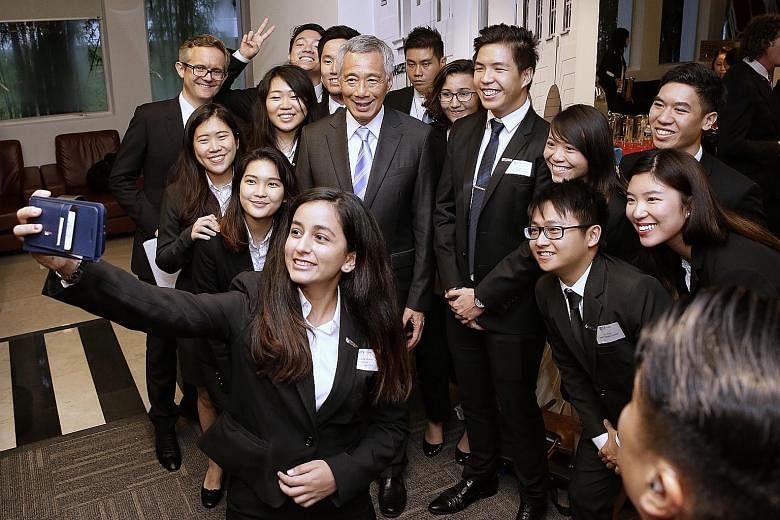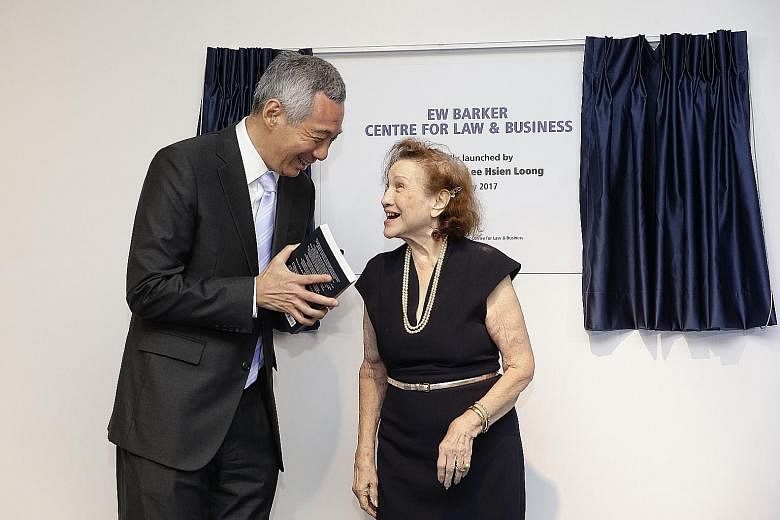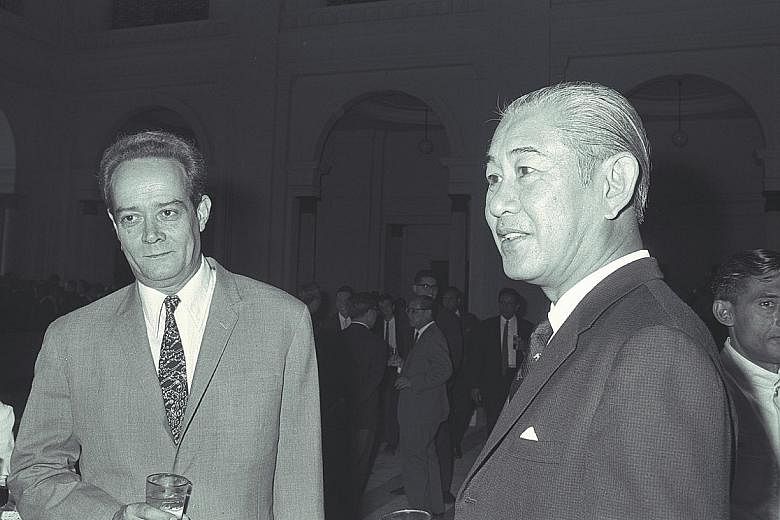To maintain its competitive edge, Singapore needs to keep its law and lawyers up to date, Prime Minister Lee Hsien Loong said yesterday.
It has so far distinguished itself from rivals because its legal system is respected and admired at home and abroad, Mr Lee noted.
But Singapore's laws cannot be static because globalisation and technology are changing how business is done, he said at the launch of the EW Barker Centre for Law and Business.
"Up to date, effective but not onerous regulation has become a new source of economic competitiveness," he told members of the Barker family and about 100 members of the legal fraternity.
The commercial law research centre, known previously as the Centre for Law and Business, is under the National University of Singapore's law faculty.
Set up in 2014, it was renamed after Singapore's first law minister E. W. Barker, who held the portfolio from 1964 to 1988. Mr Barker died in 2001, aged 80, after two months in intensive care following colon surgery.
Yesterday's event also marked the 60th anniversary of the NUS law faculty.
In his speech, Mr Lee cited the technological changes that would require new laws.
One is e-commerce, which crosses national borders and needs sound frameworks for enforcement and taxation.
Also, clear rules and effective safeguards are needed in other areas, such as cyber security and intellectual property protection.
Emerging technology like artificial intelligence will need innovative regulation as well.
Think tanks like the EW Barker Centre can help by researching, organising conferences and teaching, Mr Lee said.
Its outcomes should be practical, aimed at improving the lives of Singaporeans and foster Singapore's development.
The PM also called on the centre to work with businesses, policymakers, legal practitioners here and in the region to produce fresh ideas and policy recommendations.
Through this, Singapore can continue to be a preferred location for arbitration and dispute resolution for businesses in Asia, he said.
Mr Lee also paid tribute to the late minister's contributions in establishing the rule of law in Singapore.
He drafted documents that were the legal basis of Singapore's independence: The Separation Agreement, the Amendment Bill for Malaysia's Constitution and the Proclamation of Singapore.
"Fifty years later, none of the provisions in the documents has ever been disputed or challenged, not even fundamental provisions such as the guarantee of the Water Agreements," Mr Lee said.
"Singaporeans owe a profound debt of gratitude to the draughtsman of their independence, Mr Barker," he added.
Mr Barker also had a keen political sense, Mr Lee said, citing two cases.
One is Singapore's "Stop at Two'' population policy in the 1960s.
Some ministers wanted to pass a law to implement it, but Mr Barker advised against it. Instead, he suggested giving families incentives to stop at two children. "That was the wiser approach," said Mr Lee.
The other was when he was tasked to clean up the Singapore River. Instead of evicting the peddlers and hawkers along the river, he built hawker centres that were rented cheaply to the hawkers.
"So today, Singaporeans and tourists enjoy our chicken rice and bak chor mee at affordable prices and in orderly and hygienic conditions," said Mr Lee. "Our hawker stalls sometimes even receive Michelin stars," he added, to laughter.
He urged the centre to learn from the late minister's practical nature, saying: "By combining legal know-how with political instincts and a human touch, Mr Barker came up with practical solutions and contributed to creating and building a prosperous Singapore."
Mr Barker's wife Gloria, 87, and their four children were at the event. Senior counsel Deborah Barker, a managing partner at Withers KhattarWong and an NUS alumni, said that helping the young and those in need were close to her father's heart.
The centre, with $21 million, raised from 11 donors and a matching government grant, will expand its manpower and scope of activities.
The E .W. Barker Bursary was also launched yesterday to help needy undergraduate law students at NUS. It is supported by a fund of more than $300,000 from five donors in the legal fraternity and a matching grant from the Government. Two bursaries of $6,000 each will initially be given each year.
Citing a 1967 speech by her father, Ms Barker too encouraged the centre to "express the social, political and economic realities that we face today globally and help to develop solutions that are practical and reasonable".



